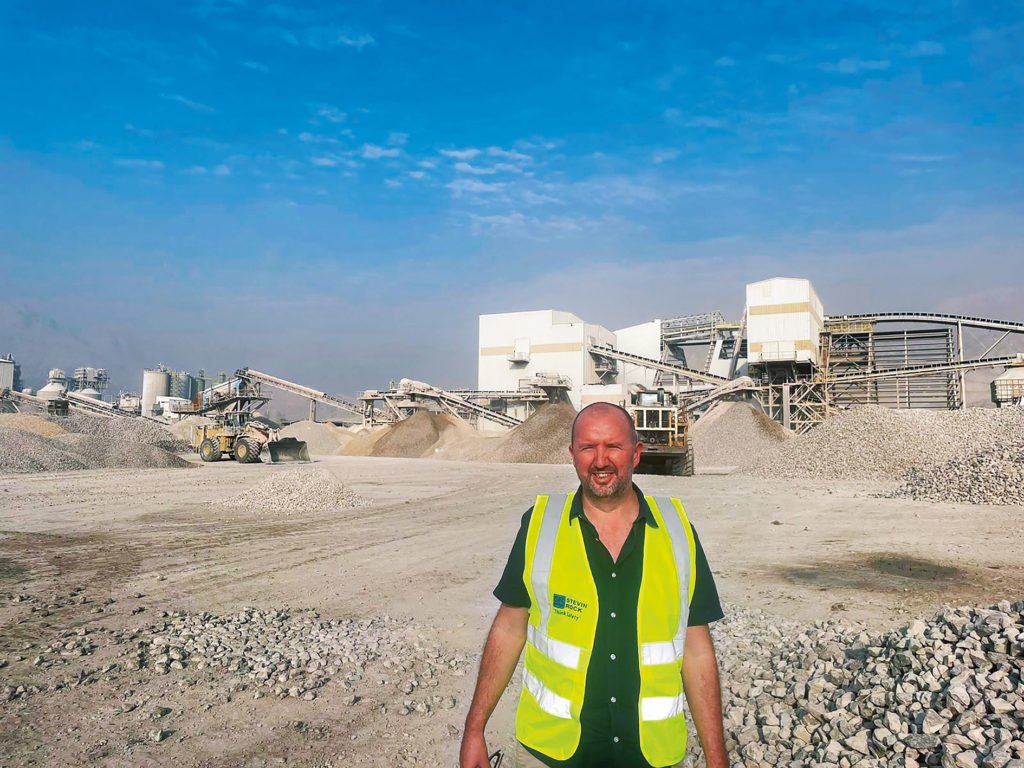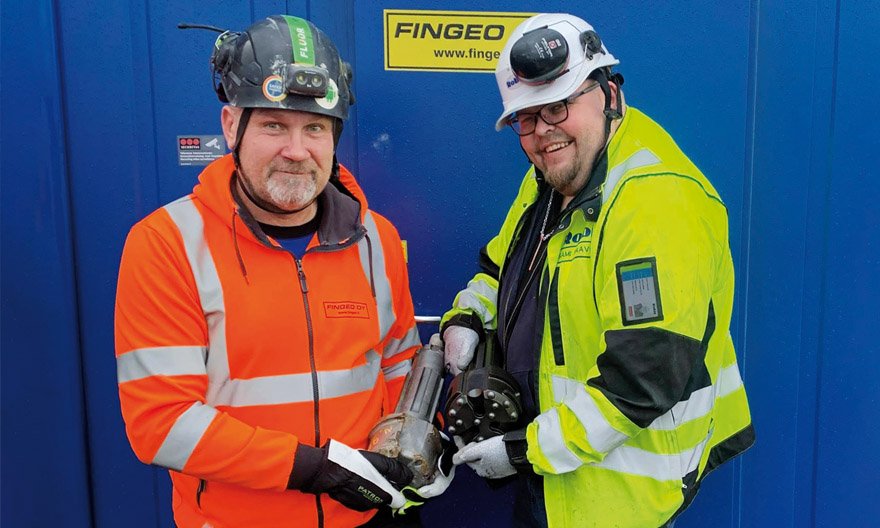Kauno Määttä was a familiar name to Finnish wrestling fans in the 1960s and 70s: he won the Finnish Greco-Roman wrestling championship in his weight class several times. In his day job, however, Kauno did not make the headlines despite being a respected professional: he drilled wells.
Kauno’s career as a driller continued into retirement and was passed on to the next generations. In the late 1980s, Kauno’s primary school-age grandsons, Sami and Simo Manninen, got the spark when they got invited as helpers for a well-drilling job.
The spark ignited a lasting passion, and as a result, the brothers’ own company, Oulun Porakaivot, was finally born in 2012. It operates throughout Finland, and its core business is drilling geothermal energy fields for large properties. Oulun Porakaivot also handles the design and permitting of the energy fields and has a wide range of customers from the public sector to commercial properties and housing cooperatives. They also drill individual geothermal and water wells for detached houses and other small properties.
Oulun Porakaivot operates six drilling rigs and has long been Robit’s contract customer, using Robit products for all key consumables such as rods, ring bits, drill bits, and pilots. Panu Haulos, Design Engineer at Oulun Porakaivot, has noticed a welcome improvement in the quality of drilling tools.
“Reliability of consumables is critical in this sector. The wells are getting deeper – up to 450 meters – and the plots of land are often small: if the first hole falls short, there may not be enough room to drill a new one. In consumables, we have to look at the cost of a drill meter from an overall economic perspective: performance, drilling speed and fuel consumption. Robit’s products have been consistently reliable and have performed excellently in deep wells. And today’s hammers and bits are more durable than before,” says Panu.
For about a year, Robit has been developing a new four-inch DTH hammer, branded Robit H4, for well drilling. Testing in cooperation with customers is an integral part of product development. The H4 hammer was optimized and finalized as per customer feedback. Robit’s Sales Director Kimmo Kangas approached Oulun Porakaivot and offered them an opportunity to test the new hammer. A suitable test site was found in Helsinki, at a housing cooperative’s future energy field, where 23 wells will be drilled to a depth of 390 metres. Kimmo has followed the development of the H4 hammer from the beginning and has seen its potential.
“The functionality, reliability and penetration rate of the H4 are outstanding. However, the most significant improvement is fuel consumption, which is significantly lower than the competition. Typically, for example, in a 200-meter well, the compressor consumes about two litres of fuel per meter. On the H4 hammer, the consumption has been as low as one and a half litres. That’s a crucial difference,” says Kimmo.

Low fuel consumption is one of the key assets of the H4 hammer.
Panu Haulos confirms that the H4 has achieved very low fuel consumption figures at the drilling test site. The two companies have been in close cooperation for years.
“Robit’s domestic production is definitely a plus for us: we can get parts with a fast response time. They react quickly to our needs, around the clock if necessary. Robit has also been able to help in special cases where off-the-shelf products have not been available. For example, we had a project where the hole we were to drill had to be absolutely straight. Robit tailor-made us a special guiding rod that did the job,” says Panu.
In many sectors of the economy, growth indicators have recently taken a downward turn. This is not the case in the thermal well market, at least not for Oulun Porakaivot.
“The trend is upward, and demand is constantly growing and diversifying. Of course, this is partly due to technological advances that allow us to drill deeper wells. In Finland, the city of Helsinki, in particular, is a strong driver of progress in this field. The city, striving to move away from fossil-based district heating, has streamlined the permitting process for geothermal heat”, Panu says.
Picture from left: Ville Alanko, Simo Manninen, CEO Sami Manninen, Panu Haulos (Oulun Porakaivot); on the right Kimmo Kangas (Robit).



